
I had a thought the other day as my son was picking greens to hand-feed to the sheep. We should go on a hunt to find as many wild edibles on our land as we could!

About Our Land
We live on one acre which is a part of a larger tract of family land. To be fair, we set the following rules on ourselves for this hunt.
- Search only our land. Do not venture into the woods or other areas on the property where there are known wild edibles that we have previously found.
- Only edible plants--no herbs or medicinal plants.
- No picking items that we have planted since living here.

The Search
We started at our house, stopped by the workshop area, and then worked our way down the driveway to the mailbox near the road. After the mailbox, we went down towards the garden. The below image is from Google Maps which last scanned our land while the house was still under construction.
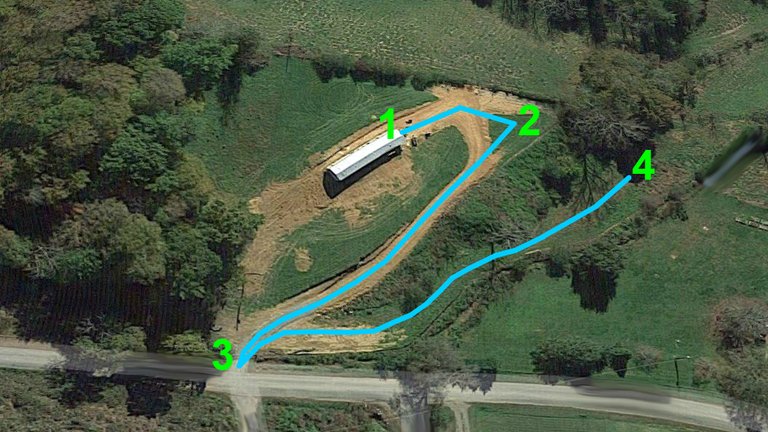

Show and Tell
Here are the wild edibles we found. Note: Several of these have medicinal qualities, but I am only writing about their edible qualities in this post.
Broadleaf Dock
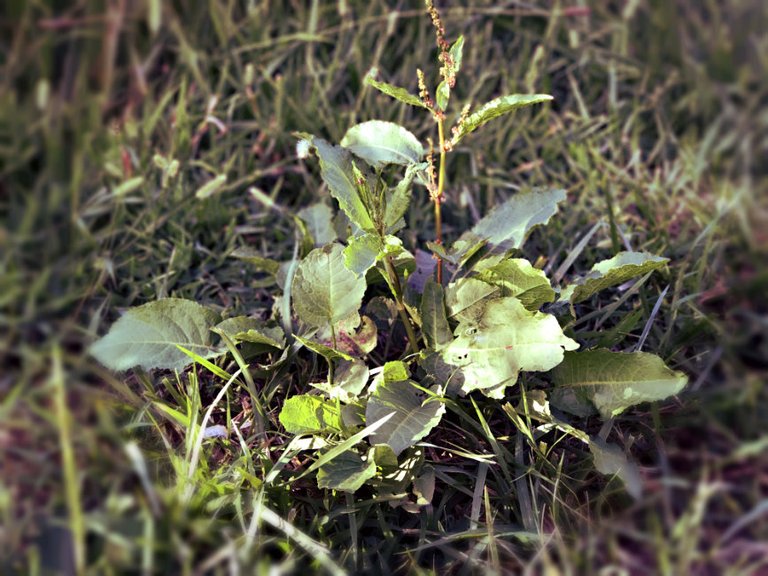
https://en.wikipedia.org/wiki/Rumex_obtusifolius
Can use the leaves for a salad, to make into a broth, or cook/steam like any other green.
Wood Sorrel
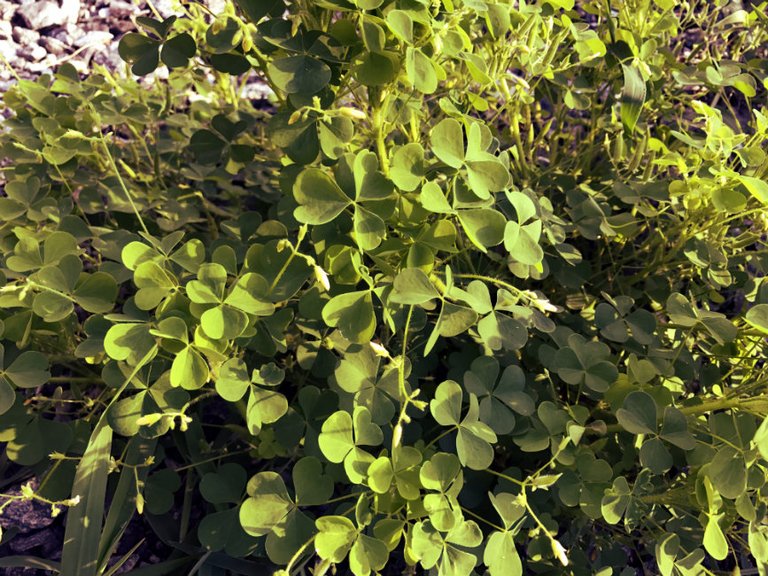
https://en.wikipedia.org/wiki/Oxalis_acetosella See also: https://en.wikipedia.org/wiki/Oxalis
Edible leaves and tubers, consumed by humanity for millennia. Natives used it medicinally for a variety of treatments. Sailor used to as a source of Vitamin C.
Broadleaf Plantain

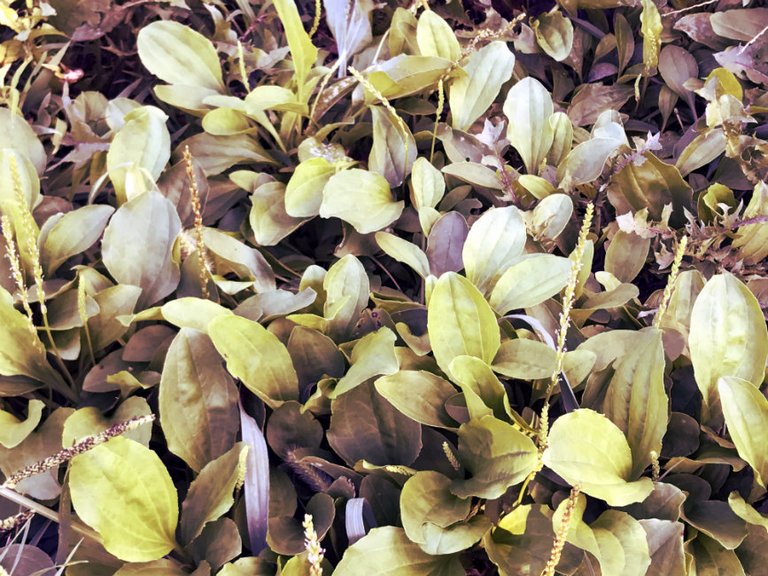
https://en.wikipedia.org/wiki/Plantago_major
Leaves are edible in salads or in stews when cooked. The small young leaves are better tasting as the larger ones get tough and very fibrous.
Wild Prickly Lettuce

https://en.wikipedia.org/wiki/Lactuca_serriola
Young leaves are preferred for eating in salads or cooking. Leaves have a bitter taste that will get stronger with the age of the leaf.
Red Clover
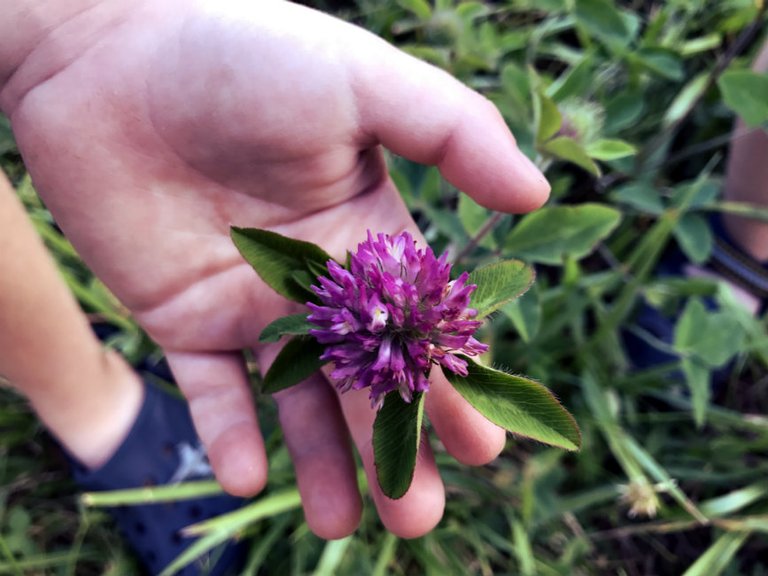
https://en.wikipedia.org/wiki/Trifolium_pratense
Commonly used for making sweet tasting teas for drinking.
Lambs Quarter
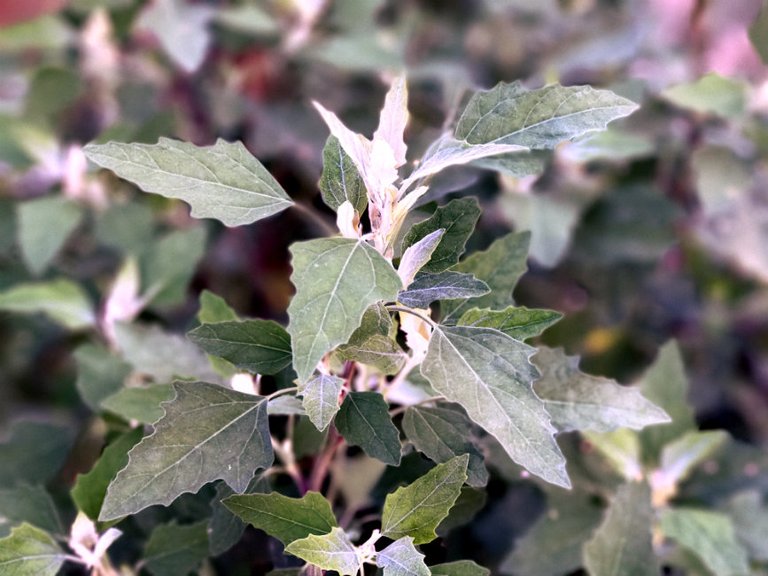
https://en.wikipedia.org/wiki/Chenopodium_album
Leaves and young shoots are good to eat raw, or cooked. Seeds are high in protein and in close relation to quinoa.
Eastern Black Walnut

https://en.wikipedia.org/wiki/Juglans_nigra
Husk the nut while still green. Crack open the shell and eat the nut inside. Can be roasted or eaten raw.
Black Raspberry

https://en.wikipedia.org/wiki/Rubus_occidentalis
Pick and eat the berries when their color ranges from dark red to black.

Closing Thoughts
Sorry, we didn't eat the grasshopper... but our chickens may have!


This post received a 3.9% upvote from @randowhale thanks to @greenacrehome! For more information, click here!
Very nice wild edibles trip around your homestead. Thanks for sharing :)
Thank you, glad you enjoyed it. :)
Great post! I am happy to up vote this one! 😍😋
Thank you, much appreciated.
Good post. We have a few wild berries at times. You have all the good stuff. Grasshoppers! 🐓🐓
This particular grasshopper was lucky.. it was in with the sheep and far from the chickens. It better stay put! :)
If it values it's life! Thanks for stopping by! 🐓🐓
I've found out that Lamb's Quarter is what we call Fat Hen here in the UK - the chickens love it !
That's awesome! I like that name better... I'm switching over. ;-)
Great post! Those berries at the end, I always called Wine Berries growing up. I have seen others call them Salmon Berries or Shuck Berries. They are Rubus phoenicolasius. Thanks for sharing your foraging finds!
You're right, Wine Berries here too. :-\
Awesome to see others exploring their places. Sharing to get others on board for this!
Yay! Thanks weetree. :)
nice post and glad to have found your blog! Following
Much appreciated, thank you!
Congratulations! This post has been upvoted from the communal account, @minnowsupport, by greenacrehome from the Minnow Support Project. It's a witness project run by aggroed, ausbitbank, teamsteem, theprophet0, and someguy123. The goal is to help Steemit grow by supporting Minnows and creating a social network. Please find us in the Peace, Abundance, and Liberty Network (PALnet) Discord Channel. It's a completely public and open space to all members of the Steemit community who voluntarily choose to be there.
If you like what we're doing please upvote this comment so we can continue to build the community account that's supporting all members.
Thats a photo of wine berries! :)
Ahh dang... You're right! :-)
This sure was interesting. The boys are learning so much and they will always remember their fun times growing up. Thank goodness you didn't eat that grasshopper! LOL!
So long as they remember it as fun! LOL :-) I remember working a lot as a kid. Hahaha
I happen to love black walnuts
We have about 8 trees on our land that we're planning to harvest from this year. :)
Very cool idea to go on a wild edible treasure hunt. It's amazing how many edibles you found. Thank you for the valuable information.
Glad you liked it! It was very educational for us all, too. :)
@greenacrehome got you a $1.85 @minnowbooster upgoat, nice! (Image: pixabay.com)
Want a boost? Click here to read more!